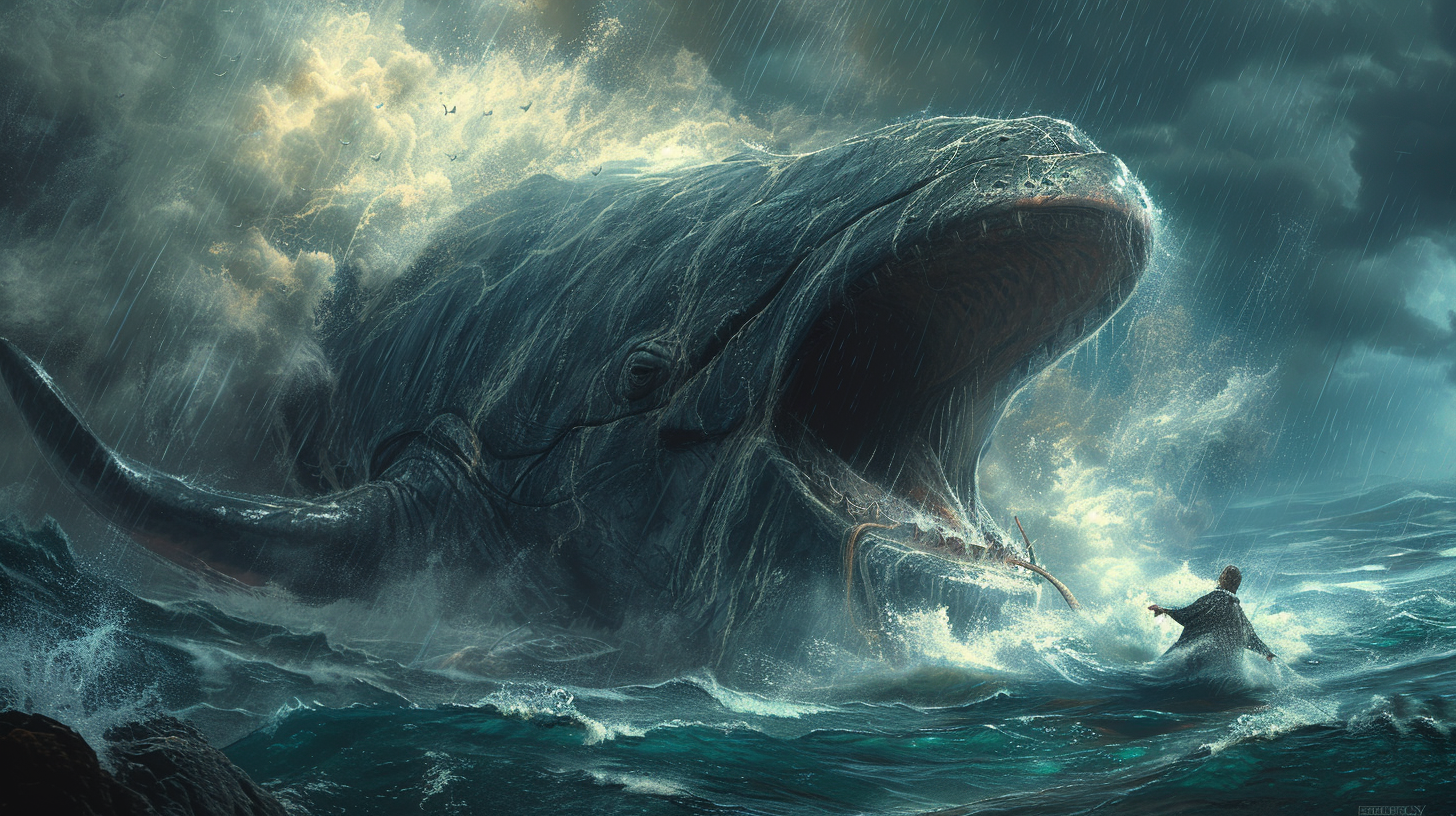Every time I approach the book of Jonah in the bible I am conflicted with trying to wrap my mind around the very existence of this book. My first perplexing thought is, who wrote this book? Because if Jonah wrote this book, he did so in a very fatalistic and self destructive manner. There is no redemption for Jonah in this book. He is the villain. Had this book offered any sort of ending where the prophet realizes his struggle or misalignment of character, than it would make sense that he was documenting his own story in a time of reflection. But we don’t get that from the story. Jonah fades into the future in a depressed and angry way. It’s almost more like the author of this story is someone who came across Jonah in bar late one night, hearing his sad story of an amazing adventure but with no redemption for the prophet in the story, because he is still bitter about it all. Because somehow the author had to have some form of first hand account of Jonah’s experience. Otherwise, it can be assumed that the large fish story is just that, a large fish story. Or perhaps as it can happen throughout history, the story of Jonah was an accumulation of the stories of sailors and the people of Nineveh which over time combined to form the narrative understanding of the fish, but then who claims that Jonah prayed from within the whale? It’s all very perplexing. I like to picture the guy in the bar hearing the story from Jonah first hand. Although, it probably wasn’t a bar. More likely it was a priest ministering to a broken hearted man. And maybe there was redemption in Jonah’s story, but that’s not the point of the book, so it is not told.
I understand that Jonah is a part of what is called “Jewish meditation literature”. Much like the story of Job, it’s purpose is to create a discussion or bring about thoughts in the reader. To contemplate morality and God’s character through theses stories. This story is purposefully left with the reader unsure of the outcome for the prophet. This leaves an invitation to the reader to contemplate how we would change or react to all that we have read. It is not to teach a moral but to allow us to explore our own perception of morality. Perhaps we should see our own bitterness and resentments in the prophet’s story. Which is an area where many fail to understand. Jonah’s hatred for the people of Nineveh was very much justified.
It’s well documented in human history outside of the bible that the people of this area were awful. Hitler’s holocaust of the Jews would seem a kindness in comparison to the way that the Ninevites tortured and mistreated the Jewish people. They would drag them out of town and have their skin removed while screaming in agony. It was well known and established that these people were beyond evil and deserving of Jonah’s distain. Knowing that changed how I saw Jonah’s character journey. Of course he was mad. God wanted to bring grace to the Nazis and Jonah wasn’t having none of it. I think we can all understand that. We really struggle with a God who forgives monsters. But maybe that is the point. For us to look past our moral boundaries and try to contemplate God’s perspective on forgiveness and justice.
The other issue I have with the book of Jonah is that, although it’s a rather isolated story that does not appear to have a great deal of prophetic messages or inter-linking with other scripture, it is directly cited by Christ as the last miraculous sign that would be given to man, “the sign of Jonah”, which could be as simple as Jonah spending 3 days below in the belly of the beast, to rise again on the third day, but maybe there is more to it. Maybe Jesus was painting a deep comparison to Jonah. Jonah was the imperfect prophet, running away from God’s plan. Jonah fell into the consequence of suffering while running away from God. Jesus was the perfect priest, following God directly into suffering that he did not deserve. I just find it odd that Jesus calls attention to this bit of meditation literature. Was it simply to cloud his plans so that nothing would be revealed to soon, but after the resurrection we could better understand? Or is there something deeper about the book of Jonah that deserves a closer look?
One thing is very clear to me though. And that is that most churches are teaching Jonah to children for all the wrong reasons. We often focus on the fish. The fish could be replaced with a dozen metaphors and not effect the story whatsoever. We probably shouldn’t teach this story to children until they are old enough to understand how evil and violent the Ninevites really were and the discussion should probably center around bias, bigotry, and hatred that we are capable of that is so different from who God is. In the end, I just don’t think it is a children’s story and we do the next generation a disservice when we “story time” segments of sacred scripture in order to package educational lessons from scripture. I have pondered on the book of Jonah for a couple years now and I may ponder on it for the rest of my life. And maybe that is point. Maybe it’s supposed to meet us where we are and reflect on this story through our current emotional state. I really don’t know the answer. And I am distrustful of anyone who thinks they have it all figured out.


0 Comments